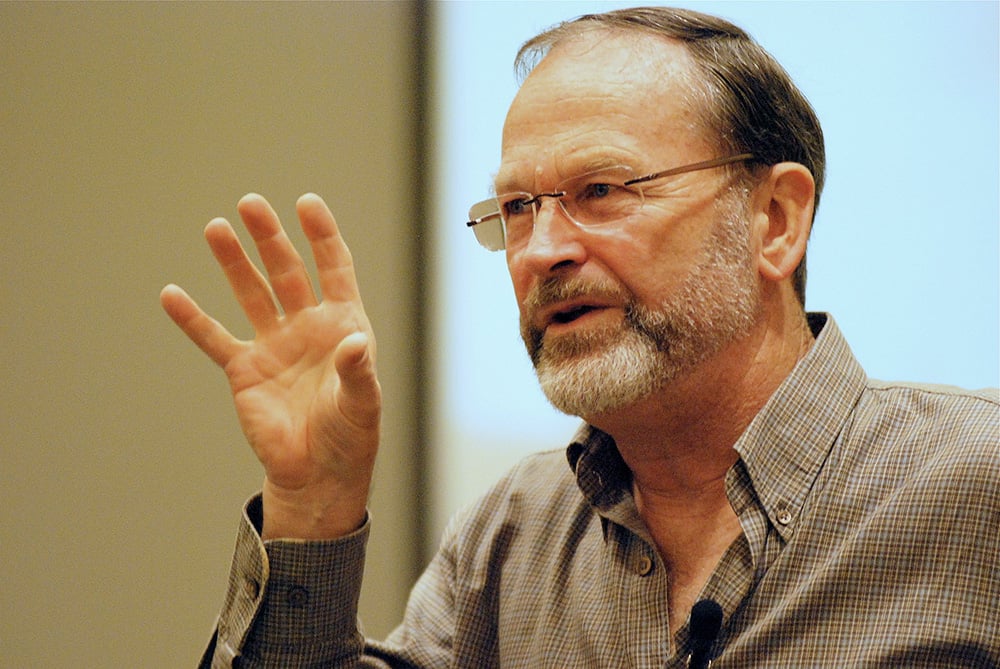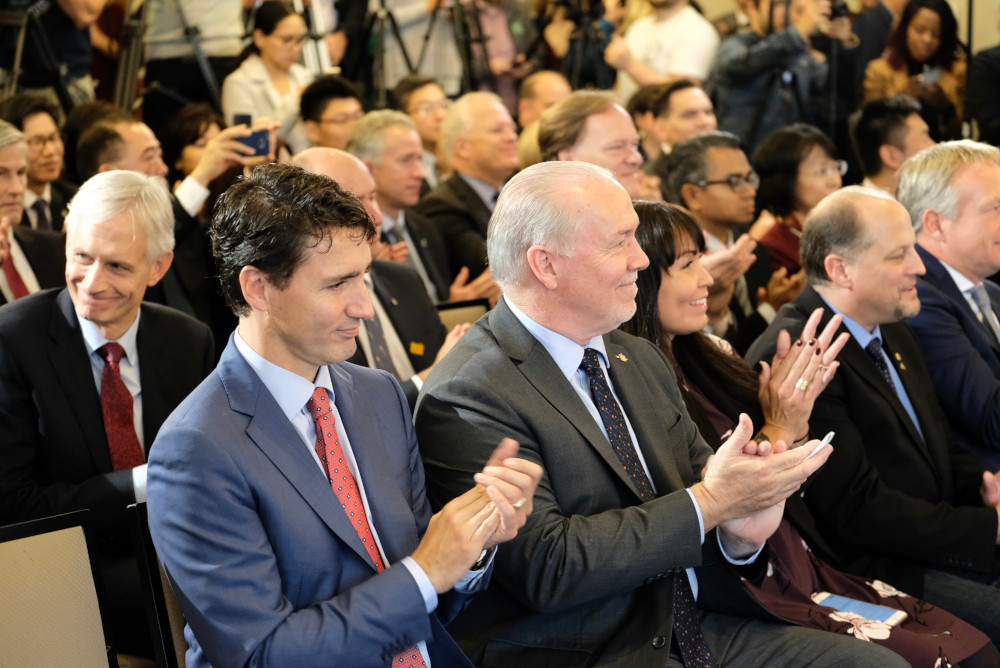Creator of the ‘ecological footprint’ on life and death in a world 4 C hotter.

UBC professor emeritus William Rees provides the grim calculations for humanity if climate change and growth in population and consumption fueled by cheap energy goes unchecked. Photo by Nick Wiebe, Wikimedia.
Carbon emissions may continue to rise, the polar ice caps may continue to melt, crop yields may continue to decline, the world’s forests may continue to burn, coastal cities may continue to sink under rising seas and droughts may continue to wipe out fertile farmlands, but the messiahs of hope assure us that all will be right in the end. Only it won’t.” — Chris Hedges
One thing the climate crisis underscores is that Homo sapiens are not primarily a rational species. When forced to make important decisions, particularly decisions affecting our economic security or socio-political status, primitive instinct and raw emotion tend to take the upper hand.
This is not a good thing if the fate of society is at stake. Take “hope” for example. For good evolutionary reasons, humans naturally tend to be hopeful in times of stress. So gently comforting is this word, that some even endow their daughters with its name. But hope can be enervating, flat out debilitating, when it merges with mere wishful thinking — when we hope, for example, that technology alone can save us from climate change.
As novelist Jonathan Franzen asks: “If your hope for the future depends on a wildly optimistic scenario, what will you do 10 years from now, when the scenario becomes unworkable even in theory?”
We needn’t bother Roger Hallam with this question. He can scarcely be held up as a “messiah of hope.” Quite the contrary. Hallam, a co-founder of Extinction Rebellion, has been desperately warning of societal collapse for years.
But on Aug. 15, in a memorable session of the BBC’s HardTalk, Hallam irritated multiple cultural nerves by claiming, on the basis of “hard science,” that six billion people will die as a result of climate change in coming decades.
More specifically, our ruling elites’ inaction and lies on climate change will lead to climate turmoil, mass starvation and general societal collapse in this century. Normally unflappable HardTalk host, Stephen Sackur, just couldn’t wrap his mind around Hallam’s unyielding assertions. MORE

